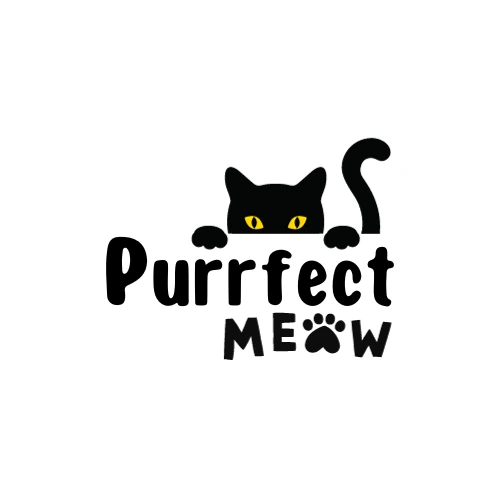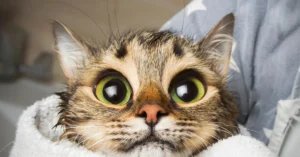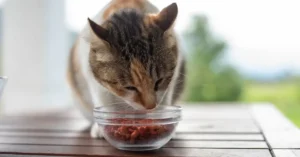I have a cat since I’m living on my own and that’s already over 15 Years. After the first accident my Cat had, I did understand how important health insurance for cats is. Don’t worry, he didn’t hurt himself much, but the cost at the vet was quite high, this would be less worrying if I had health insurance for cats at that time already.
As pet owners, we all want to ensure that our furry friends receive the best possible care when it comes to their health. However, just like humans, cats can also experience unexpected illnesses and injuries that require medical attention. This is where health insurance for cats comes into play, providing peace of mind and financial protection for pet owners.
Pet insurance, including health insurance for cats, is designed to help cover the cost of veterinary care in the event of an unexpected illness or injury. With the rising cost of veterinary care, having health insurance for cats can prevent pet owners from having to make difficult decisions between their pet’s health and their financial well-being.
When it comes to health insurance for cats, there are a variety of options available, each with their own unique features and benefits. From comprehensive coverage that includes routine care to accident-only plans, pet owners can choose a plan that fits their budget and their cat’s specific needs. With the right health insurance for cats, pet owners can rest easy knowing that they are prepared for whatever unexpected health issues may arise.
Understanding Health Insurance for Cats
As responsible pet owners, we want to ensure that our furry friends receive the best possible care. However, veterinary bills can add up quickly, especially if your cat requires surgery or treatment for a serious illness. That’s where cat health insurance comes in.
Health insurance for cats is designed to help cover the cost of veterinary care for your feline friend. Just like human health insurance, health insurance for cats policies can vary widely in terms of coverage and cost. Here are some key things to keep in mind when shopping for cat insurance:
Coverage
Different cat insurance policies cover different things. Some policies may only cover accidents, while others may also cover illnesses, routine care, and even behavioral issues. It’s important to carefully review the coverage options for each policy you’re considering to make sure you’re getting the coverage you need.
Cost
The cost of health insurance for cats can vary widely depending on the level of coverage you choose, your cat’s age and breed, and other factors. Some policies may have a higher monthly premium but a lower deductible, while others may have a lower monthly premium but a higher deductible. It’s important to consider both the monthly cost and the potential out-of-pocket expenses when choosing a policy.
Exclusions
Like all insurance policies, health insurance for cats policies may have exclusions. For example, some policies may not cover pre-existing conditions or may have a waiting period before certain conditions are covered. It’s important to carefully review the policy exclusions before signing up for a policy.
Choosing a Policy
When choosing a health insurance for cats policy, it’s important to do your research. Look for policies that offer the coverage you need at a price you can afford. Read reviews from other pet owners to get a sense of how easy the policy is to use and how responsive the insurance company is to claims.
In summary, health insurance for cats can be a valuable investment for pet owners who want to ensure that their furry friends receive the best possible care. When shopping for cat insurance, be sure to carefully review the coverage, cost, and exclusions of each policy to find the one that best meets your needs.
Types of Cat Insurance
When it comes to health insurance for cats, there are several types of coverage available. The most common types are accident-only, accident and illness, comprehensive, wellness, and routine care. Each type of insurance offers different levels of protection, so it’s important to choose the one that best fits your cat’s needs.
Accident-Only Insurance
Accident-only insurance covers your cat in the event of an accident, such as a broken bone or ingestion of a foreign object. This type of insurance is typically the most affordable option, but it does not cover illnesses or routine care.
Accident and Illness Insurance
Accident and illness insurance covers your cat for accidents and illnesses, such as cancer or diabetes. This type of insurance is more expensive than accident-only insurance, but it provides more comprehensive coverage.
Comprehensive Insurance
Comprehensive insurance is the most extensive type of cat insurance available. It covers accidents, illnesses, and routine care, such as vaccinations and check-ups. This type of insurance is the most expensive, but it offers the highest level of protection.
Wellness Insurance
Wellness insurance covers routine care, such as vaccinations and check-ups. This type of insurance is designed to help prevent illnesses and keep your cat healthy. It does not cover accidents or illnesses.
Routine Care Insurance
Routine care insurance covers routine care, such as vaccinations and check-ups, as well as some preventive treatments, such as flea and tick prevention. This type of insurance is less comprehensive than wellness insurance and does not cover accidents or illnesses.
Overall, the type of cat insurance you choose will depend on your cat’s individual needs and your budget. It’s important to carefully consider your options and choose the type of insurance that provides the best coverage for your furry friend.
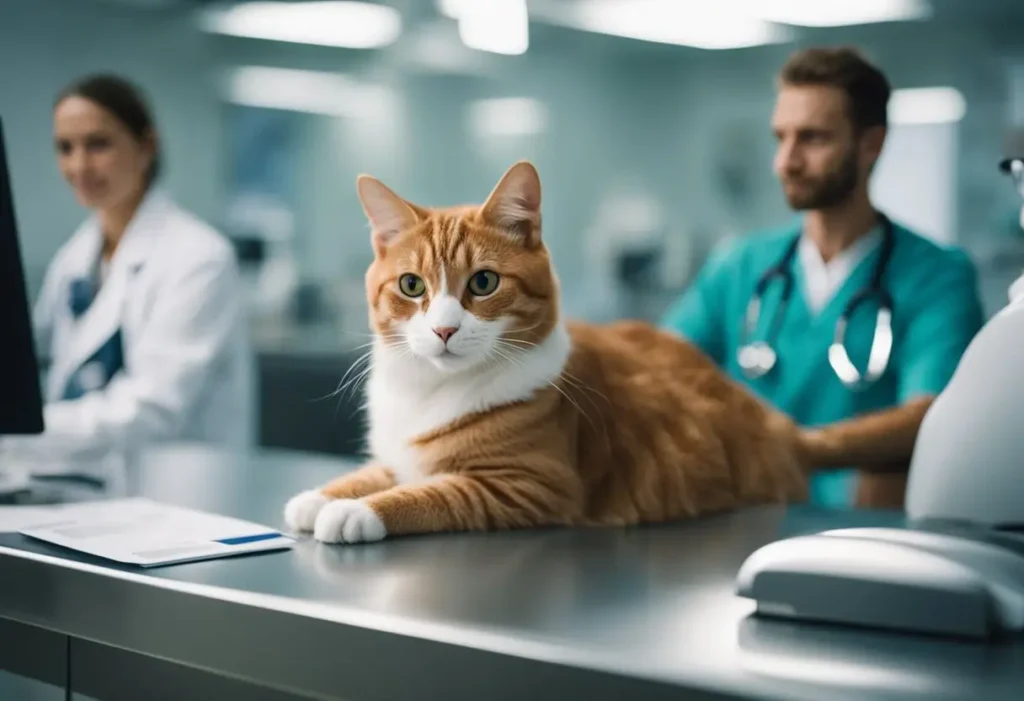
Factors Influencing Insurance Cost
When it comes to purchasing health insurance for cats, there are several factors that can influence the cost of the policy. Understanding these factors can help you make an informed decision when choosing the right insurance plan for your furry friend.
Age
The age of your cat is one of the most significant factors that can impact the cost of their health insurance policy. Generally, the younger your cat is when you purchase their policy, the lower your premiums will be. This is because younger cats are generally healthier and less prone to developing health problems that require expensive treatments.
Breed
The breed of your cat can also play a role in determining the cost of their health insurance policy. Certain breeds are more prone to developing specific health conditions, which can increase the cost of their coverage. For example, Persian cats are more likely to develop respiratory issues, while Siamese cats may be more prone to dental problems.
Location
Where you live can also impact the cost of your cat’s health insurance policy. Insurance companies may take into account factors such as the cost of veterinary care in your area, as well as the prevalence of certain health conditions in your region.
Cat’s Age
The age of your cat when you first purchase their policy can also impact how much you pay for coverage. Generally, the younger your cat is when you purchase their policy, the lower your premiums will be. However, if you wait until your cat is older to purchase coverage, you may end up paying more for their policy.
Overall, it’s important to carefully consider these factors when shopping for health insurance for your cat. By doing so, you can find a policy that provides the coverage you need at a price that fits your budget.
Coverage Details
When it comes to health insurance for cats, it’s important to understand what is and isn’t covered. Most pet insurance policies cover accidents and illnesses, which can include injuries and veterinary care for your cat. However, it’s important to read the fine print to see what specific treatments and procedures are covered.
For example, some policies may cover cancer treatments, while others may not. Similarly, some policies may cover dental cleanings, spaying, and neutering, while others may not. It’s important to consider your cat’s specific needs and health history when choosing a policy.
Alternative therapies, such as acupuncture, may also be covered by some policies. If you’re interested in these types of treatments for your cat, be sure to look for a policy that includes coverage for alternative therapies.
It’s also important to consider any pre-existing conditions your cat may have. Many policies will not cover pre-existing conditions, so be sure to disclose any health issues when applying for coverage.
Overall, when choosing a health insurance for cats policy for your cat, it’s important to carefully consider your cat’s specific needs and the coverage options available.

Choosing the Right Health Insurance For Cats Provider
When it comes to health insurance for cats, choosing the right provider is crucial. With so many options available, it can be overwhelming to decide which one is the best fit for you and your furry friend. Here are some factors to consider when selecting an insurance provider:
Coverage and Benefits
It’s important to understand what type of coverage and benefits each provider offers. Some providers, like Pets Best and Embrace, offer comprehensive coverage that includes accidents, illnesses, and wellness care. Other providers, like Spot and Lemonade, offer more limited coverage options. Make sure to read the fine print and understand what is and isn’t covered before making a decision.
Cost
Cost is another important factor to consider. Some providers, like Figo and Trupanion, offer customizable plans that allow you to adjust your deductible and reimbursement levels to fit your budget. Others, like Fetch, offer more affordable plans with lower monthly premiums but higher deductibles. Consider your budget and what you can realistically afford when choosing a provider.
Reputation and Customer Service
The reputation and customer service of a provider can also make a big difference. Look for providers with positive reviews and a good track record of paying claims quickly and efficiently. Embrace and Pets Best are both known for their excellent customer service, while Spot and Lemonade have received mixed reviews.
Additional Services
Finally, consider any additional services or perks that a provider may offer. Some providers, like Figo, offer lost pet recovery services and telemedicine consultations. Others, like Trupanion, offer coverage for hereditary and congenital conditions. These additional services can be a valuable bonus when choosing a provider.
Overall, choosing the right insurance provider for your cat requires careful consideration of the coverage, cost, reputation, and additional services offered by each provider. By taking the time to research and compare your options, you can find a provider that meets your needs and gives you peace of mind knowing that your furry friend is covered in case of an emergency or illness.
Cost and Payment Details
When it comes to health insurance for cats, one of the most important things to consider is the cost. The cost of cat insurance can vary depending on a variety of factors, such as the age, breed, and health of your cat, as well as the level of coverage you choose.
Generally, cat insurance premiums can range from around $10 to $50 per month, with some plans offering higher levels of coverage for an additional cost. It’s important to keep in mind that while a lower monthly premium may seem more affordable, it may also mean that you have a higher deductible or lower reimbursement rate, which could result in higher out-of-pocket expenses in the long run.
When getting a quote for cat insurance, it’s important to consider your budget and what you can realistically afford. You may want to consider opting for a plan with a higher monthly premium but a lower deductible and reimbursement rate to help keep your out-of-pocket expenses down.
In addition to the monthly premium, there may also be other out-of-pocket expenses to consider, such as co-pays, deductibles, and annual maximums. Make sure to read the fine print of your policy to understand what these costs may be and how they could impact your overall expenses.
Overall, the cost of cat insurance is an important factor to consider when choosing a plan. By taking the time to compare different plans and understand the costs associated with each, you can find a plan that fits your budget and provides the coverage your cat needs.
Additional Services and Benefits for Health Insurance for Cats
In addition to covering unexpected accidents and illnesses, some health insurance for cats providers offer additional services and benefits to help keep your cat healthy and happy. These services may include:
- Preventative Care: Some providers offer add-ons or wellness plans that cover routine treatments and procedures such as vaccinations, flea and tick treatment, and heartworm prevention. These treatments are generally inexpensive, so paying for those out-of-pocket might be a better option. However, if you prefer to have everything covered under one plan, a wellness plan might be a good option for you.
- Discounts: Many pet insurance providers offer discounts for multiple pets or for enrolling online. Be sure to check with your provider to see if they offer any discounts that you may be eligible for.
- Specialist Visits: If your cat requires specialized care from a licensed veterinarian, some pet insurance providers may cover the cost of specialist visits. This can include visits to veterinary oncologists, dermatologists, and ophthalmologists.
- Direct Deposit: Some pet insurance providers offer direct deposit for claim reimbursements. This can be a convenient option if you prefer to have your reimbursements deposited directly into your bank account.
- X-Rays, Surgery, and Prescription Medication: Many pet insurance plans cover the cost of x-rays, surgery, and prescription medication. Be sure to check with your provider to see what is covered under your plan.
- Boarding: If your cat requires boarding due to an unexpected hospitalization or emergency, some pet insurance providers may cover the cost of boarding.
Overall, it’s important to choose a pet insurance provider that offers the services and benefits that meet your specific needs. Be sure to do your research and compare different providers to find the best plan for you and your furry friend.

Insurance for Different Ages and Conditions
When it comes to health insurance for cats, age is an important factor to consider. Many insurance companies have age limits for coverage, so it’s important to research and find a policy that fits your cat’s age. For example, Nationwide cat insurance requires cats to be registered before reaching 10 years of age.
Another important factor to consider is your cat’s medical history. Some insurance companies may not cover pre-existing conditions, so it’s important to read the policy carefully and understand what is covered and what is not.
If you have a kitten, it’s important to get them insured as soon as possible. Kittens are more prone to accidents and illnesses, and having insurance can help cover the cost of unexpected vet bills. Some insurance companies offer coverage specifically for kittens, so be sure to look for policies that cater to younger cats.
As your cat ages, their health needs may change. They may require more frequent vet visits or specialized care. Some insurance companies offer coverage for routine care, such as wellness exams and dental cleanings, which can be helpful for older cats.
It’s important to research and compare policies to find the best coverage for your cat’s specific needs. Be sure to read the fine print and understand what is covered and what is not. With the right insurance policy, you can have peace of mind knowing that your feline friend is covered in case of unexpected health issues.
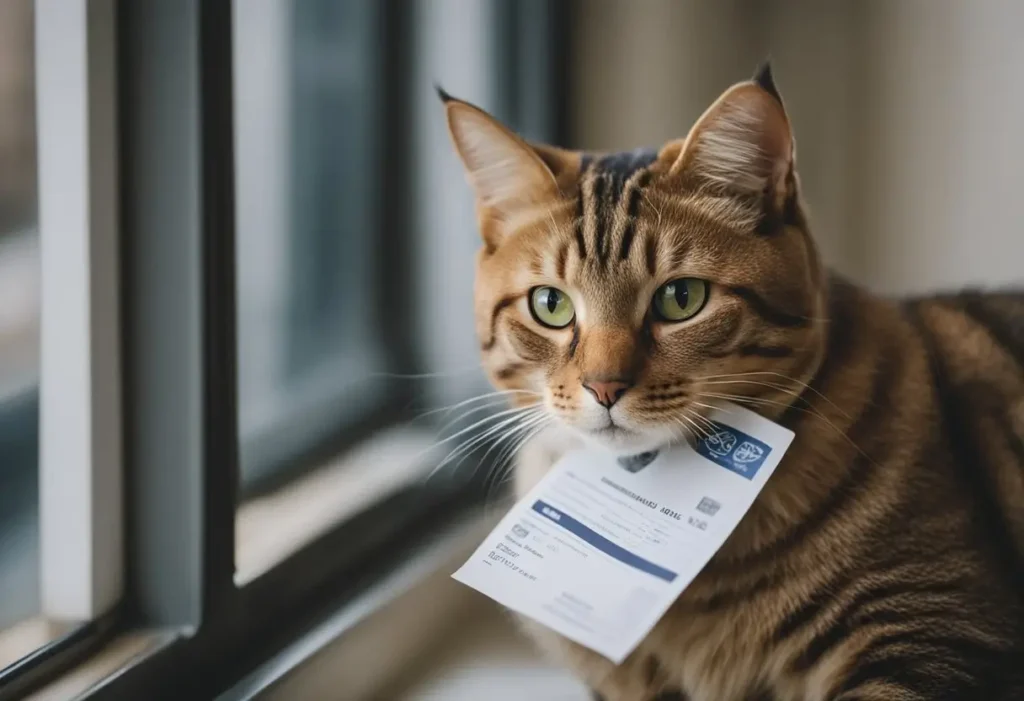
Reviewing Health Insurance For Cats Options
When it comes to finding the best health insurance for cats, there are a lot of options to choose from. It can be overwhelming to try and navigate through all of the different plans and providers, but we are here to help make the process a little bit easier.
One of the first things to consider when reviewing health insurance for cats options is what type of coverage you are looking for. Are you looking for a plan that covers routine check-ups and vaccinations, or are you more concerned with coverage for unexpected illnesses or injuries? Some plans offer both types of coverage, while others may only cover one or the other.
Another important factor to consider is the cost of the plan. Affordable health insurance for cats is important, but it’s also important to make sure that the plan you choose provides adequate coverage for your cat’s needs. Some plans may have a lower monthly premium, but may also have a higher deductible or lower coverage limits.
When researching different providers, it can be helpful to read reviews from other cat owners who have used their services. This can give you a better idea of what to expect in terms of customer service, claims processing, and overall satisfaction with the plan.
One provider that consistently receives positive reviews is Embrace Pet Insurance. They offer comprehensive coverage for cats, including coverage for genetic conditions and alternative therapies. They also have a reputation for excellent customer service and fast claims processing.
Ultimately, the best health insurance for cats plan for you will depend on your individual needs and budget. It’s important to do your research and compare different plans and providers to find the one that best fits your cat’s needs.
Our Thoughts About Health Insurance For Cats
We hope this article has helped you understand the importance of investing in health insurance for cats for your feline friend. As pet parents, we want to ensure our pets receive the best possible care, and having pet health insurance can provide peace of mind in case of unexpected medical expenses.
When choosing a pet insurance plan, it’s important to consider the level of coverage and payment options that work best for you. Some plans offer more comprehensive coverage options than others, so be sure to research and compare plans before making an investment.
So please remember that health insurance for cats is an investment in your cat’s well-being. By providing access to quality healthcare and coverage options, you can ensure your cat receives the care they need when they need it most.
FAQ Health Insurance For Cats
Here are some frequently asked questions about cat pet insurance:
What to look for in cat pet insurance?
When choosing a cat insurance plan, there are several factors to consider:
Coverage: Look for a plan that covers accidents, illnesses, and routine care.
Cost: Consider the monthly premium, deductible, and co-pay.
Exclusions: Make sure you understand what is not covered.
Limits: Check if there are any annual or lifetime limits on coverage.
Waiting period: Find out how long you will have to wait before coverage begins.
Is insurance worth it for cats?
The answer depends on your individual situation. If you have a healthy cat and can afford to pay for veterinary care out of pocket, insurance may not be necessary. However, if you want peace of mind knowing that you can afford unexpected veterinary bills, insurance may be a good investment. Additionally, if your cat has pre-existing conditions, insurance may be the only way to get coverage for future treatments.
What is included in cat insurance?
The coverage included in cat insurance plans can vary, but typically includes:
Accidents: Coverage for injuries resulting from accidents, such as broken bones or bite wounds.
Illnesses: Coverage for illnesses, such as cancer, diabetes, or urinary tract infections.
Routine Care: Coverage for routine care, such as annual exams, vaccinations, and dental cleanings.
Emergency Care: Coverage for emergency care, such as hospitalization and surgery.
Prescription Medications: Coverage for prescription medications prescribed by a veterinarian.
Does insurance cover cat damage?
No, pet insurance does not cover damage caused by your cat. This includes damage to your home, furniture, or other personal property. However, some policies may offer liability coverage if your cat injures someone or damages someone else’s property.
Remember to carefully research and compare different cat pet insurance plans before making a decision. Choose a plan that fits your budget and provides the coverage you need for your furry friend.
If you are interested in other health care for your feline friend you may also want to read my other articles about cat health care or cat dental health.
What are your thoughts about health insurance for cats? Let us know in the comments!
